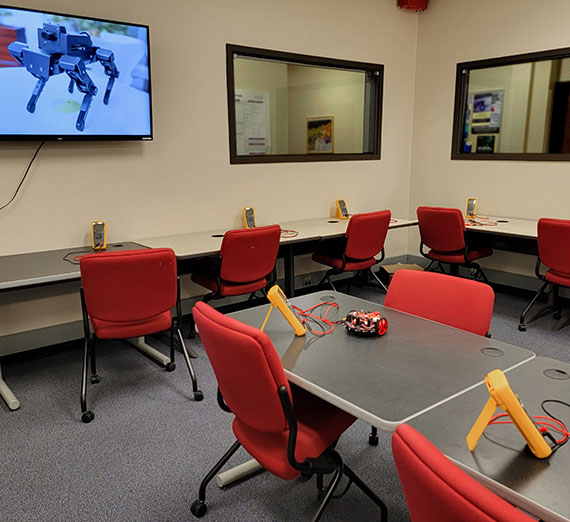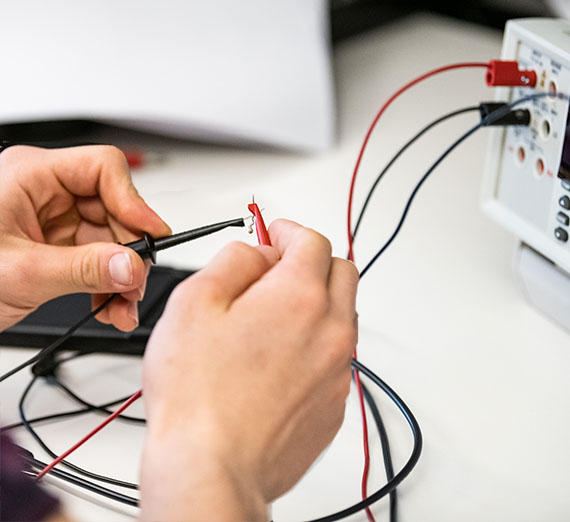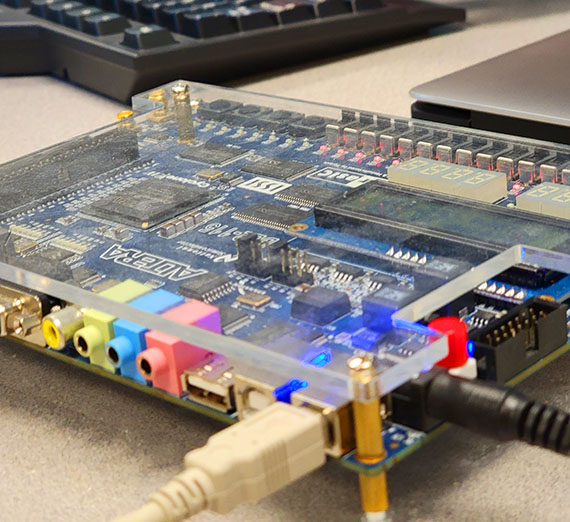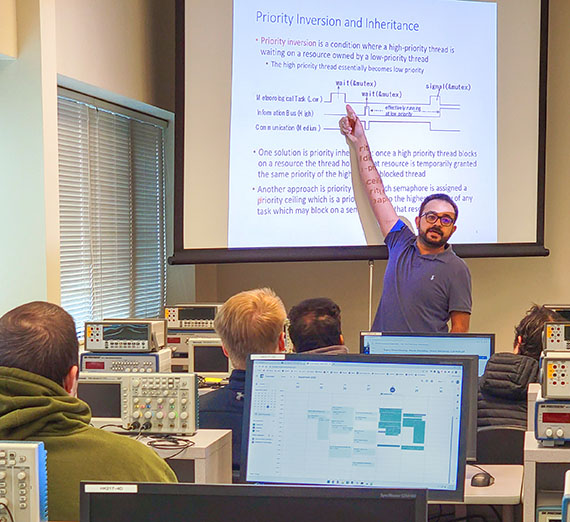Embedded Computer Systems Lab
Students use an ARM microcomputer that is interfaced to a variety of devices each requiring one of the standard codes for information transfer. Students gain practical, “hands on” and design experience incorporating microcomputer devices with software polling routines and interrupts to build simple calculators, clocks and other embedded system applications.
Linux Servers
A cluster of high-performance Linux servers (each with 32 cores) supports research and courses in parallel and cloud computing. Students gain hands-on programming experience solving computationally intensive problems using various programming paradigms such as Message Passing Interface (MPI), POSIX Thread (Pthread), OpenMP and Hadoop.




